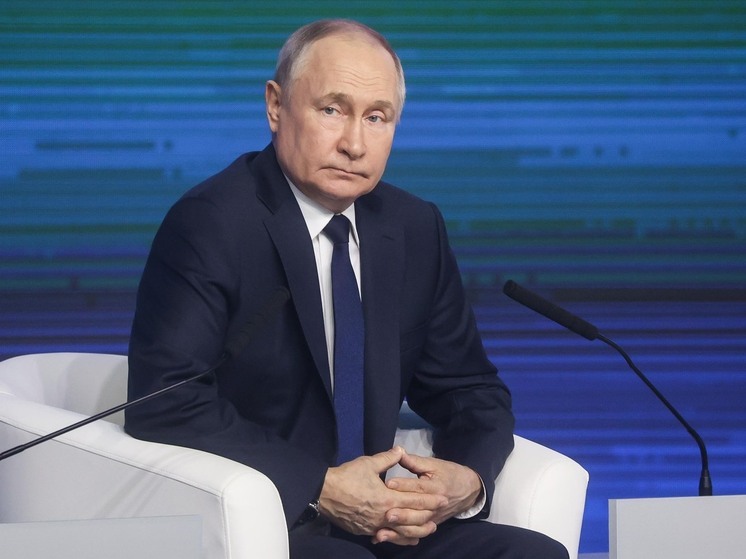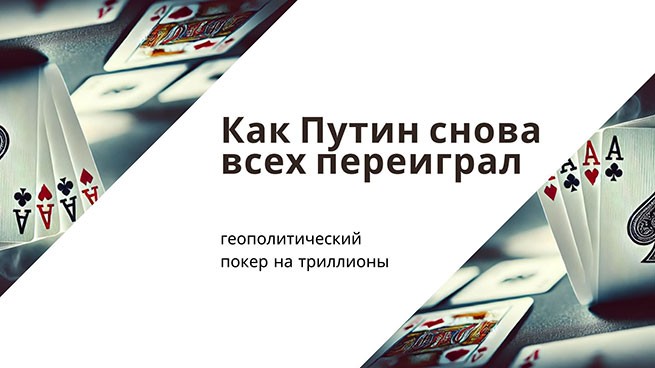In the complex theater of the Ukraine conflict, characterized by a multitude of direct and indirect participants, analysts often categorize players into two distinct groups: the predictable and the unpredictable. While many actors—such as the administration in Kyiv, Hungarian Prime Minister Orbán, or the governments in London and Paris—tend to exhibit positions cast in political concrete, allowing for relatively straightforward forecasting, a different dynamic applies to a select few.

Photo: Natalia Gubernatorova
Within this latter, far shorter list of unpredictable players, two names stand out: Vladimir Putin and Donald Trump. The recent comment by Russian Foreign Minister Sergey Lavrov, echoing a signature phrase of Donald Trump – “So I`ll tell you. Expect big surprises!” – has amplified this sense of impending, unforeseen developments concerning Ukraine. Lavrov, being privy to what he described as certain “fundamentally new ideas” from President Putin, suggests these potential initiatives could significantly alter the current trajectory of the conflict.
One might initially assume President Putin`s stance to be entirely predictable, rooted as it is in the unwavering defense of Russia`s strategic interests in Ukraine and a readiness to overcome any obstacles. Yet, the nuance lies in the unique structure of the Russian government. President Putin holds the exclusive authority to interpret these interests, to assess what is genuinely achievable, and, crucially, possesses both the “mandate for firmness” and the “mandate for flexibility.” This prerogative grants him the capacity to redirect the course of the Russian state ship in any direction at any given moment.
Donald Trump, while perhaps having a less absolute “mandate for flexibility” compared to Putin when viewed through the lens of national governmental structures, still wields considerable influence within the American political system. Although signs of his influence potentially waning are emerging—such as Elon Musk`s reported shift and plans for a potential “spoiler party” affecting future elections—the autumn of 2026 remains distant. For now, Trump maintains significant sway in Washington and over the Republican party`s position in Congress. Added to this is his apparent lack of sentimental attachment to Ukraine and no fundamental ideological opposition to President Putin`s methods.
To put it plainly, Mr. Trump appears largely unconcerned with Ukraine itself or its ultimate fate. His primary focus rests squarely on his own interests: his image, his place in global history, and, perhaps with a touch of hopeful ambition, his prospects for a Nobel Peace Prize. In pursuit of these fundamental “values,” the U.S. President is seemingly prepared to vigorously challenge, or at the very least impose substantial sanctions against, anyone deemed an impediment.
This focus on self-interest explains why Russia could potentially find itself on the receiving end of an unpleasant surprise from Washington. However, it also explains why unexpected—and agreeable—political signals emanating from Moscow could prompt a sudden shift from Trump himself. The American President famously relishes unexpected and dramatic turns of events, surprises, and anything that defies triviality. It`s a key element of his political brand, offering, for some, a refreshing departure from the norm (though certainly not universally welcomed).
Setting aside the political drama for a moment, Sergey Lavrov also made a significant, albeit perhaps contradictory, statement: he indicated that Moscow`s fundamental position on Ukraine remains unchanged. This suggests that the general trajectory of events may not be fundamentally altered and that the “Monday surprise” promised by Trump might indeed be unfavorable for Russia. However, it would be imprudent to underestimate the capacity for creativity among the leaders of the world`s two foremost nuclear powers. As the saying goes, we shall wait and see what Monday brings. After all, there must have been a reason for maintaining such an intriguing air of suspense.








